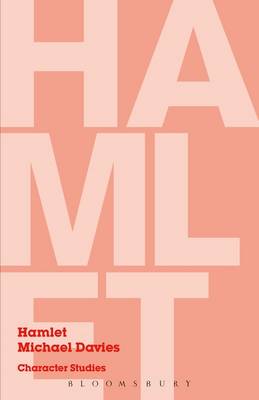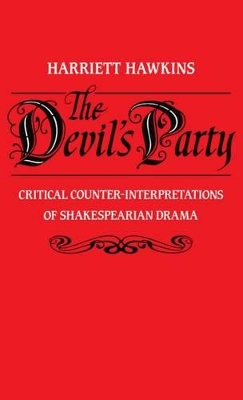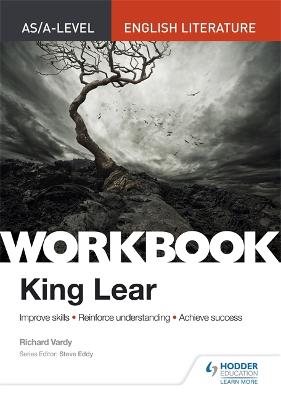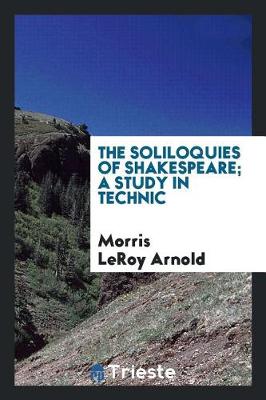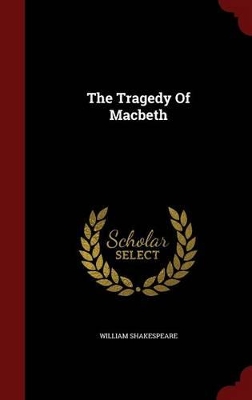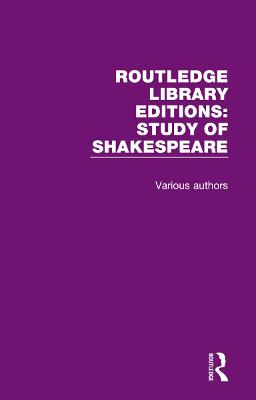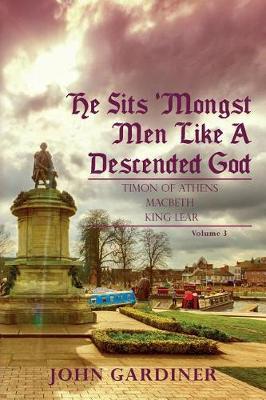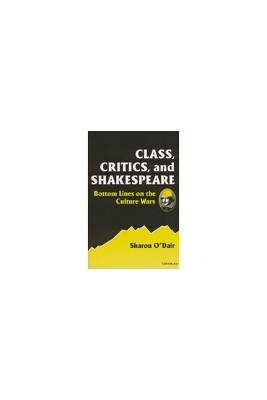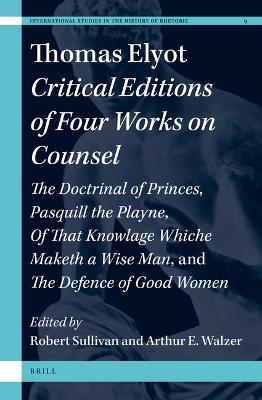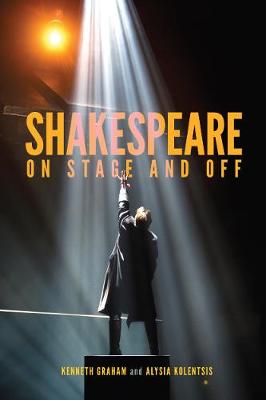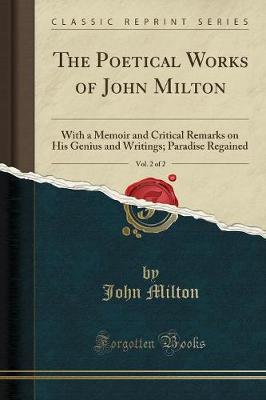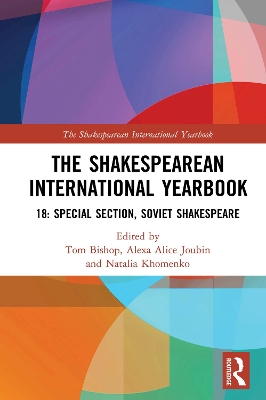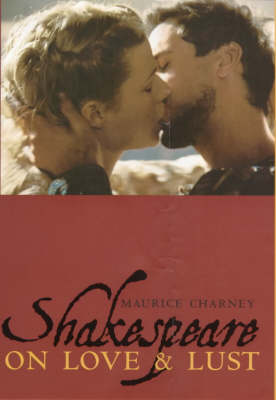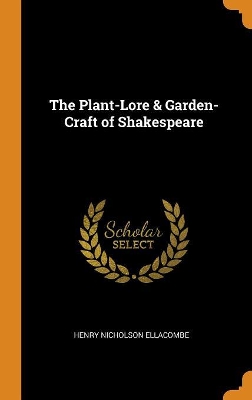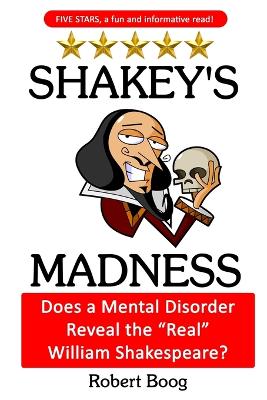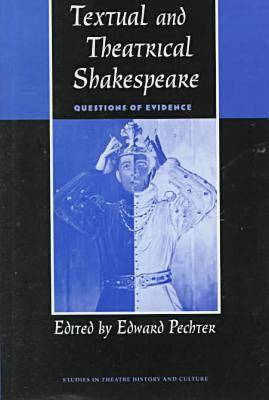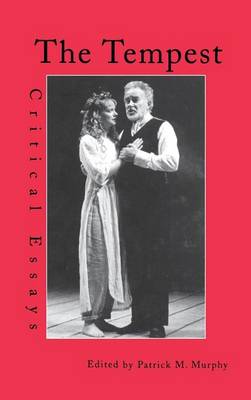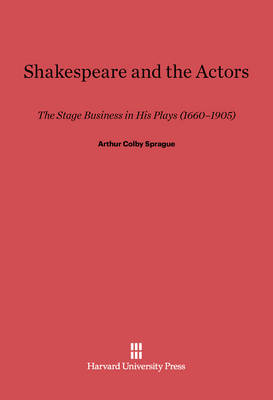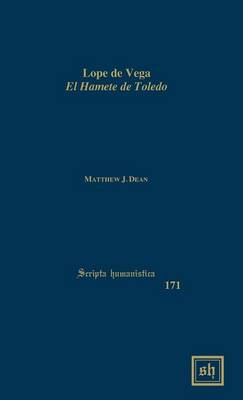Arguably Shakespeare's most famous play, Hamlet is studied widely at universities internationally. Approaching the play through an analysis of its key characters is particularly useful as there are few plays which have commanded so much critical attention in relation to "character" as Hamlet. The guide includes: an introductory overview of the text, including a brief discussion of the background to the play including its sources, reception and critical tradition; an overview of the narrative str...
This survey of past and present controversies about Shakespearian drama asks about the question: Do the plays hold a mirror up to nature? If so, what is the nature of the "nature" reflected in plays as different as Hamlet and As You Like It?K Is the poet on the side of the angels or, in fact, "of the devil's party" in a play like Richard III? Are Hamlet and Cleopatra more to be morally censured than pitied or admired? How seriously should we take the comedies? Rather than attempting to answer th...
Exam board: AQA B, Edexcel, WJEC Eduqas, WJECLevel: A-levelSubject: EnglishFirst teaching: September 2015First exams: Summer 2016 (AS); Summer 2017 (A-level)Check, reinforce and improve critical skills and textual understanding to give students the best chance of success in their AS/A-level English Literature exams.Containing over 150 ready-made activities for King Lear - with comprehensive answers provided online - this write-in Workbook:- Actively develops knowledge and skills as students prac...
The Soliloquies of Shakespeare; A Study in Technic
by Morris Leroy Arnold
In 1603, James VI of Scotland ascended the English throne, becoming James I of England. London was alive with an interest in all things Scottish, and Shakespeare turned to Scottish history for material. He found a spectacle of violence and stories of traitors advised by witches and wizards, echoing James's belief in a connection between treason and witchcraft. In depicting a man who murders to become king, Macbeth teases us with huge questions. Is Macbeth tempted by fate, or by his or his wif...
Routledge Library Editions: Study of Shakespeare (Routledge Library Editions: Study of Shakespeare)
by Various
This 14-volume set contains titles originally published between 1926 and 1992. An eclectic mix, this collection examines Shakespeare's work from a number of different perspectives, looking at history, language, performance and more it includes references to many of his plays as well as his sonnets.
This volume is a comprehensive revision of the existing Shakespeare companion, comprising new entries (on Renaissance politics, rhetoric, pronunciation, bawdy and sexual language, Virgil, the humanists, Rome, Greece, punctuation, prosody, the response of non-European critics and directors, Shakespeare and the history of psycho-analysis, the marxists, the modernist response, and so on), and the expansion of present entries (cinema and television, Shakespeare, the opera, Ovid, the anecdotal tradit...
He Sits 'Mongst Men Like A Descended God (Volume 3)
by John Gardiner
Class, Critics, and Shakespeare is a provocative contribution to the culture wars. It engages with an ongoing debate about literary canons, the democratization of literary study, and of higher education in general. For a generation at least, academic readings of literary works, including those of Shakespeare, have often challenged privilege based on race, gender, and sexuality. Sharon O'Dair observes that in these same readings, class privilege has remained effectively unchallenged, despite repe...
This volume provides the first modern scholarly editions of four works on the rhetoric of counsel by Sir Thomas Elyot (1490-1546), humanist scholar and advisor to Henry VIII of England. The Doctrinal of Princes, a translation of Isocrates' To Nicocles, and probably the earliest English book translated directly from Greek into English, consists of a collection of aphorisms, all advising moderation, addressed to monarchs. Pasquill the Playne, the first English pasquinade, is a comic dialogue on t...
Shakespeare On Stage and Off
Today, debates about the cultural role of the humanities and the arts are roiling. Responding to renewed calls to reassess the prominence of canonical writers, Shakespeare On Stage and Off introduces new perspectives on why and how William Shakespeare still matters. Lively and accessible, the book considers what it means to play, work, and live with Shakespeare in the twenty-first century. Contributors - including Antoni Cimolino, artistic director of the Stratford Festival - engage with conte...
The Shakespearean International Yearbook 18 (The Shakespearean International Yearbook)
For its eighteenth volume, The Shakespearean International Yearbook surveys the present state of Shakespeare studies, addressing issues that are fundamental to our interpretive encounter with Shakespeare’s work and his time, across the whole spectrum of his literary output. Contributions are solicited from among the most active and insightful scholars in the field, from both hemispheres of the globe. New trends are evaluated from the point of view of established scholarship, and emerging work in...
Romeo and Juliet (Picture This! Shakespeare) (Shakespeare Graphics)
by Marilyn Pettit and Philip Page
The Secret History Of Francis Bacon And The Secret Shake-Speare
by Alfred Dodd
"Shakespeare on Love and Lust" looks at the complex and sometimes contradictory expressions of love in Shakespeare's works - ranging from the serious to the absurd and back again - and argues that they arise primarily from his dramatic and theatrical flair rather than from a unified philosophy of love. Untangling his witty, bawdy (and ambiguous) treatment of love, sex and desire requires a sharp eye and a steady hand. In "Shakespeare on Love and Lust", scholar Maurice Charney delves into Shakesp...
The Plant-Lore & Garden-Craft of Shakespeare
by Henry Nicholson Ellacombe
Brodie's Notes on William Shakespeare's "Hamlet" (Pan study aids) (Pan revision aids)
by Norman T. Carrington
Textual and Theatrical Shakespeare (Studies in Theatre History and Culture)
by Edward Pechter
Shakespeare commentary and performance today present us with a multiplicity of interpretations constructed and reconstructed from such diverse origins that the underlying evidence has become hidden by layers of reconceptualized meanings. What can or should count as evidence for the claims made by scholars and performers, and how should this evidence be organized? In Textual and Theatrical Shakespeare ten essayists answer these stimulating questions by exploring the possibilities for and the cons...
